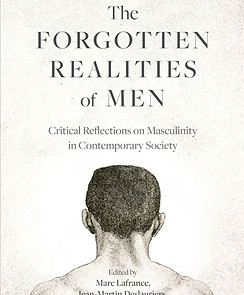Jamilah Dei-Sharpe PhD


Black Masculinity and Emotional Expression in Mainstream Rap
Dei-Sharpe, J. & M. Lafrance. (2025). Black Masculinity and Emotional Expression in Mainstream Rap. In Lafrance, M. Deslauriers, J.M., Tremblay, G., Hoebanx, P. (Eds.), The Forgotten Realities of Men. The University of British Columbia Press.
Description
In this paper, we present a critical literature review of the contemporary scholarship on Black masculinity and emotional expression in the context of mainstream rap. In doing so, we show that while extensive scholarly work has been done on how Black men enact aggression in the rap genre, far less has been done on how they express emotion. As a result, scholars have often considered hypermasculine representations of Black male rappers characterized by callous attitudes towards sex, the denigration of women, the celebration of violence, and the glorification of toughness as emotional self-control, but have tended to ignore non-hypermasculine representations characterized by displays of vulnerability, descriptions of pain and suffering, and declarations of intimacy and love. The lack of scholarship on emotional expression among Black men in mainstream rap constitutes a significant gap in the existing literature.
Our chapter aims to fill this gap by reviewing how contemporary scholarship on representations of Black men in commercially successful rap has sought to answer three key questions: (1) How is Black masculinity represented in mainstream rap? (2) How is Black masculinity represented across different rap genres, including political rap, gangsta rap, playa rap, and emotional rap? And (3) What has the existing literature clearly established in relation to Black masculinity and mainstream rap, and what does it have yet to fully consider? By examining how the existing research has sought to answer our key questions, we show that it appears to be defined by a discernible trajectory. We demonstrate that this trajectory begins with trenchant critiques of how mainstream rap represents Black men in hypermasculine terms that serve what hooks (1992) calls a "white supremacist capitalist patriarchy" and ends with more nuanced reflections on how it represents them in both hypermasculine and non-hypermasculine terms that not only confirm but also contest gender and race stereotypes. Ultimately, we argue that these non-hypermasculine representations require more attention if we hope to fully understand Black men's emotional expression in mainstream rap.